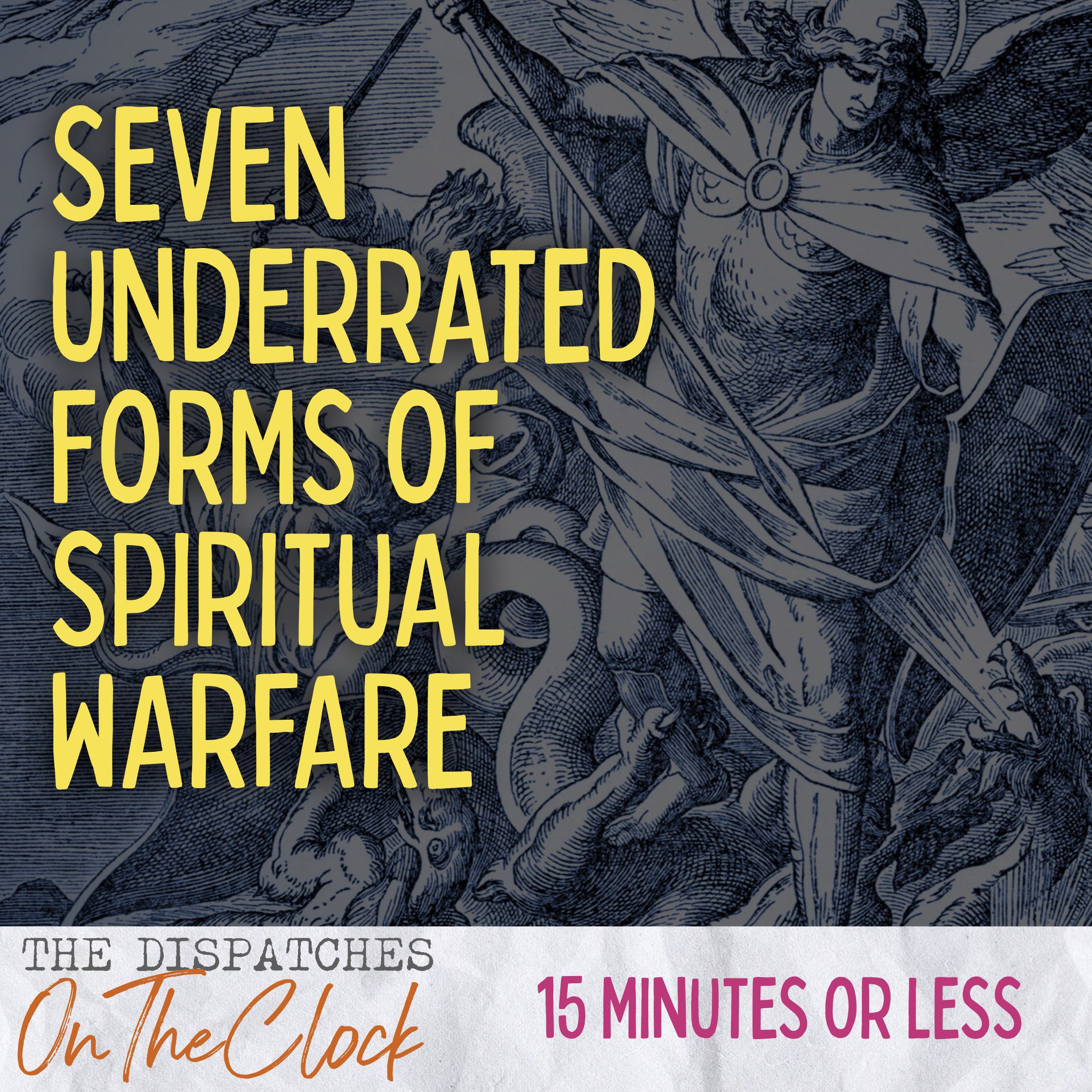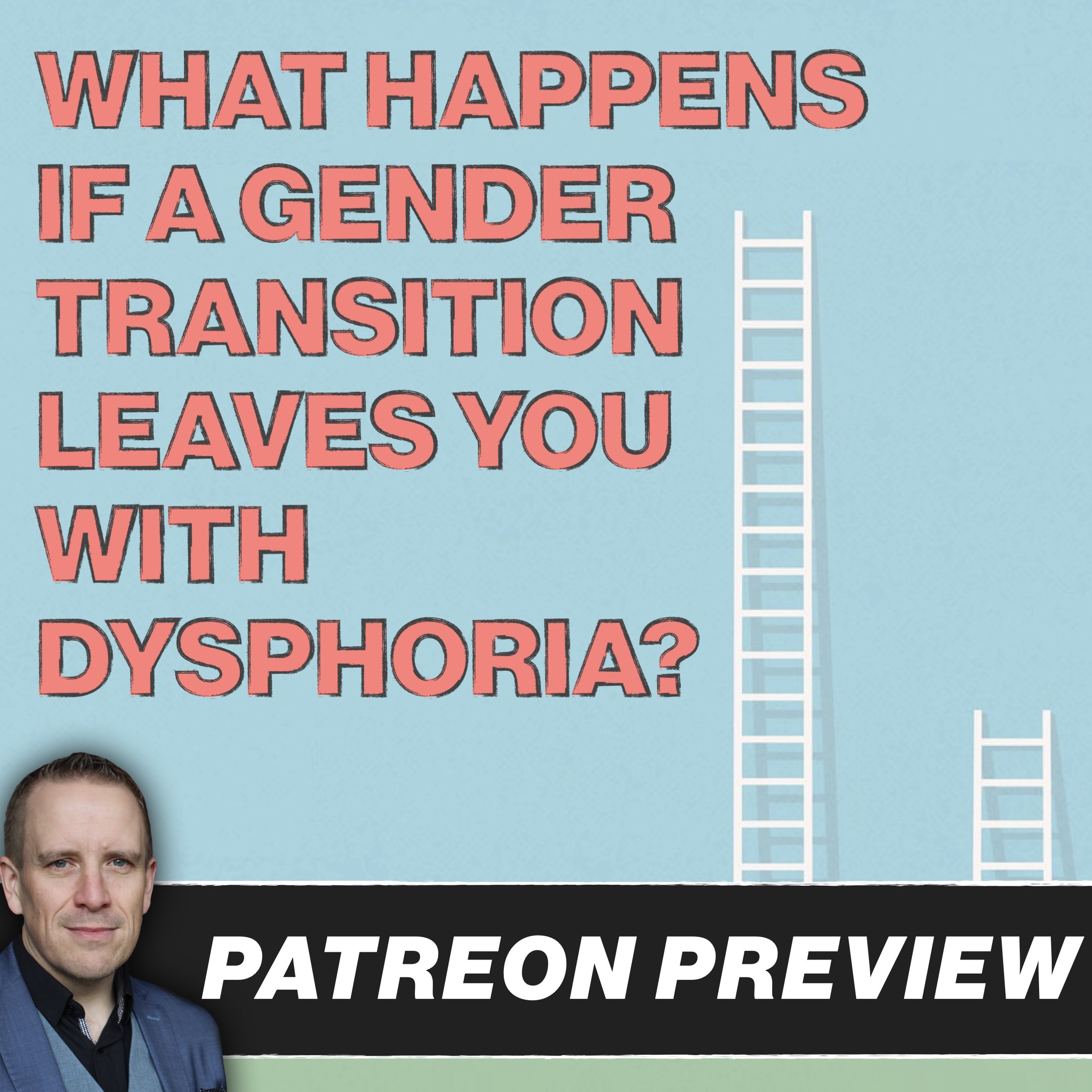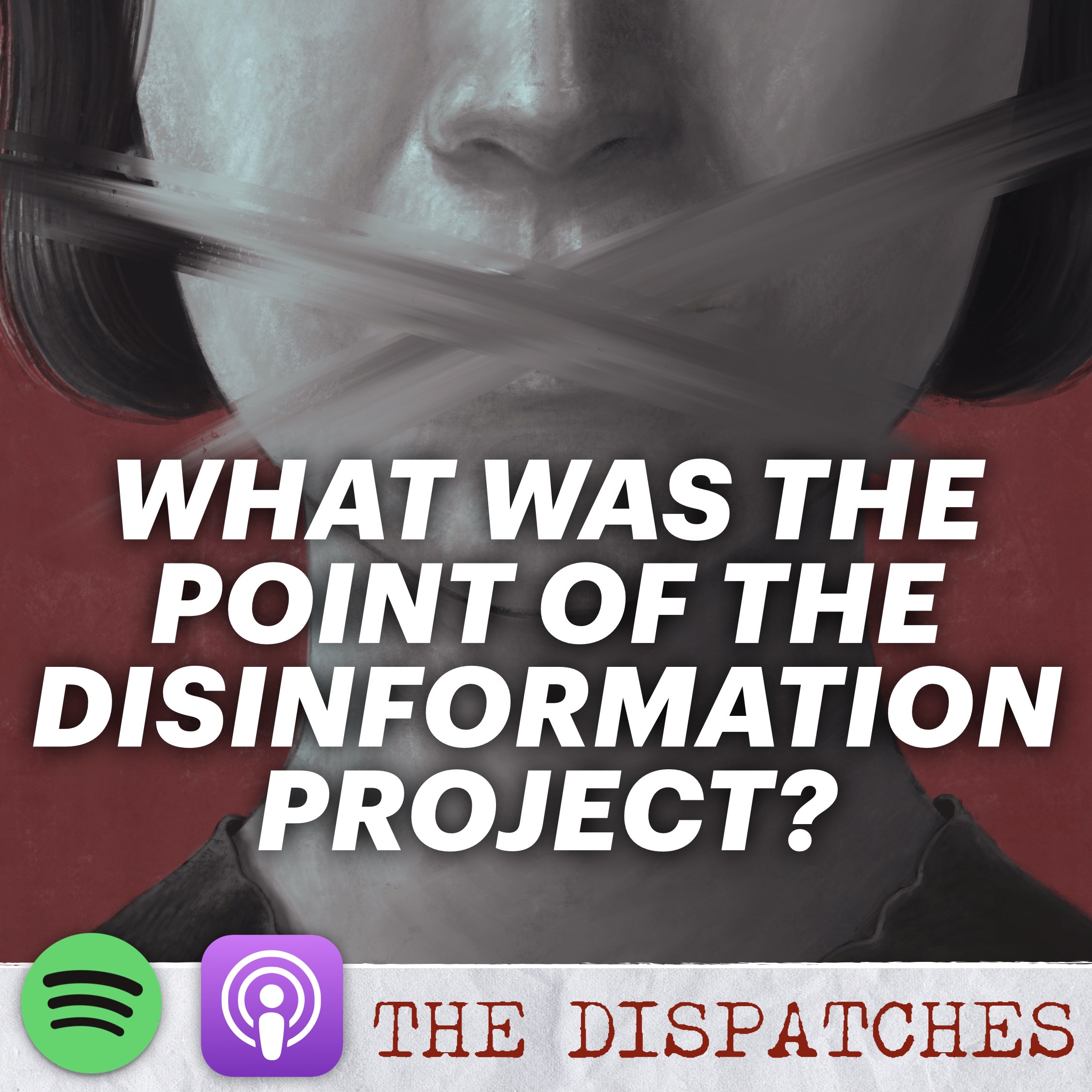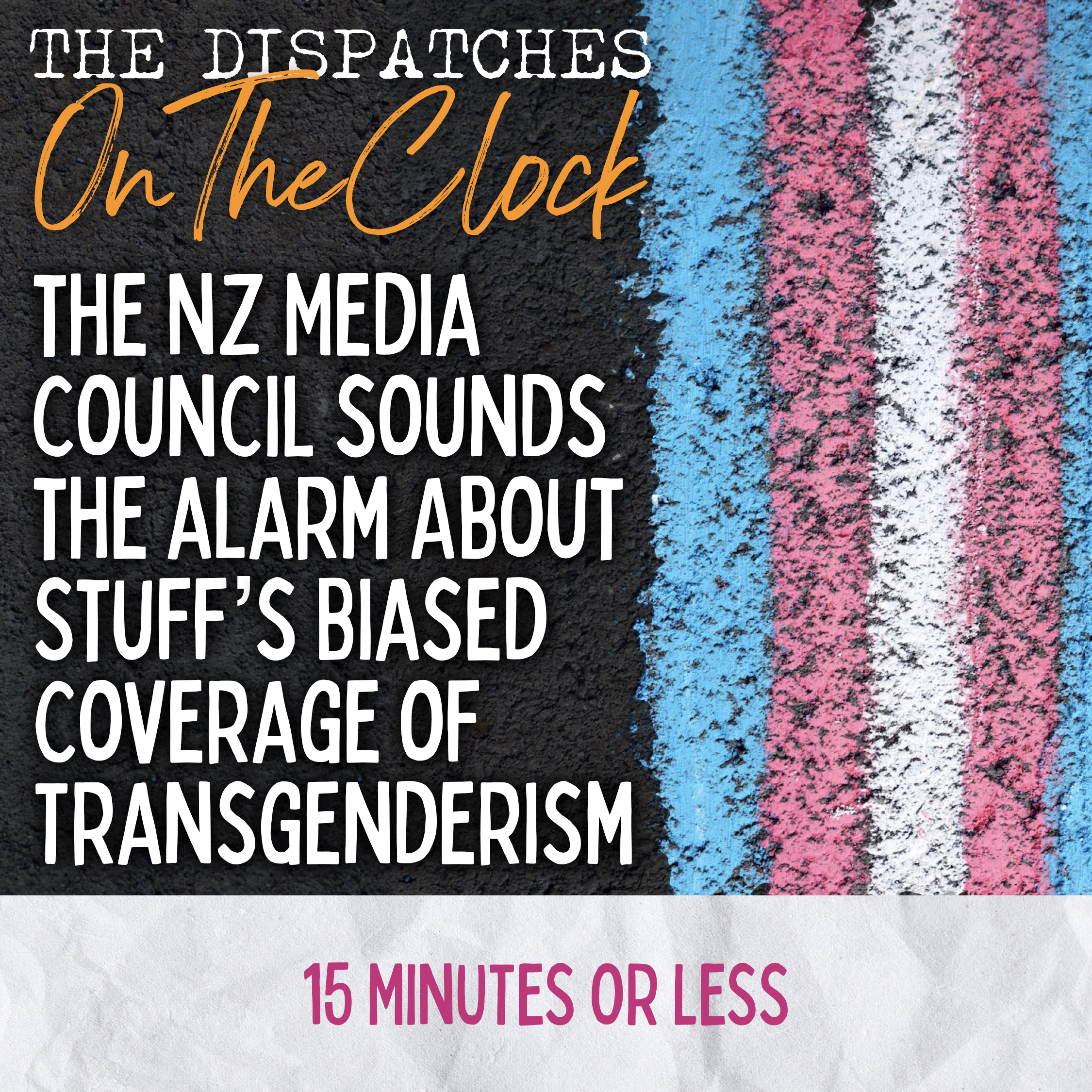[00:00:00] Now, before we get into today's topic of conversation, I just want to share with you about an awesome event that I run here in New Zealand in conjunction with a couple of other organisations every year. It's an event that I started with a couple of awesome Blokes, Dave and Brian. You know who you are. You guys are awesome. Now, both Dave and Brian have moved on to other things, but they are still working away in the background supporting this important event called the Activate Pro Life Training Week. In fact, Brian's daughter is now on the Leadership team for the Activate Pro Life Training Week. And this is a really, really important event. So let me tell you a little bit more about it. It happens twice a year, once in Auckland and once in Christchurch. It is five days of intensive formation in pro life ethics and human dignity and what it means to live a culture of goodness, truth and beauty. There is a specific focus around issues like abortion and euthanasia, but it's much bigger than that. In fact, one of the things that we constantly get as feedback from people who come to this event is they say just how blown away they are by the fact that the Activate Pro Life Training Week, they thought it was going to be sort of a very narrow thing abortion, euthanasia, that kind of stuff. But in actual fact, they realized that they learned all about the worldview that shapes the modern secular mind. They understand what it is to live and to think authentically in the mind of Christian goodness, truth and beauty. They realize that there's a bigger context for these kind of things and there's a big focus on human dignity and the human person and what it means to live in a humane society where human dignity is really celebrated and lived well and nurtured and protected. In fact, we had a pastor who attended some years ago who then, after the event was telling all of their friends who are also pastors look, you really should come to this event. It will change the way that you do Christian ministry. So, just to give you an example of what happens at the event, it's a five day event from Monday to Friday. And, for example, we spend 4 hours, not all at once, obviously broken up over a series of lectures looking at the thinkers and ideologies and the philosophies that have shaped the modern secular mindset and what an authentic Christian culture of goodness, truth and beauty, how we view the human person and human dignity and ethics and morality and things like that. We spend about 3 hours again, not all at once, broken up over several lectures looking at the issue of abortion, for example, and why people think the way they do about this issue, if they are pro choice or particularly, possibly even more rabidly pro abortion, and what the flaws might be in some of these arguments and why the pro life ethic is actually such a strong and humane ethic. We actually look at the actual arguments on both sides and explore them and unpack them and really sort of robustly get in there. We talk about issues like eugenics. We talk about euthanasia. We have a really great human rights lawyer who comes in and talks about the issue of euthanasia and some of the dangers of legalized euthanasia and what that actually means. In our country, we have people who are experts in crisis pregnancy care and in post abortion counseling who come and give sessions where they help us to understand what women in these situations are going through and how we can best care for them, what we can do to actually meet their needs. There are some really amazing fruits that have come out of Activate. We've got people who are in all sorts of places, not just here in New Zealand, but around the world, who are doing some really amazing stuff, who have been impacted by Activate. We've got people who are working at the coalface in all sorts of different professions. This is not simply something for people who say, well, I'm interested in only in abortion euthanasia. I just want to become an activist. That's not what this is about. This is about helping you to actually transform the world through goodness, truth and beauty when it comes to ethics and human dignity and what that actually looks like. So, whether you're a teacher, whether you're a parent, whether you're a scientist, whether you're a politician, whether you're a journalist, whether you're a pastor, whatever it is that you do, this is definitely an event that actually is about going deeper and exploring, I guess, the fundamental question, what is human dignity? What does it mean to be made in the image of God? How do you build a humane society around that? And one of the really beautiful fruits of this has been the number of people who have gone on from activate to actually set up or go and actively participate in caring ministries that are caring for women at the coalface and couples who are struggling with crisis or unplanned pregnancies or those who are dealing with post abortion grief. Now, the Activate Pro Life Week, as I said, is happening twice this year. Once in Canterbury in July, and it's also happening again at the end of August in Auckland. You can find out
[email protected]. That's activ the number eight nz.org. That's activ the number eight nz.org. Go to our website, check it out. You will see testimonials from people who have been there before. You can find out all about it. It's an event that I run now in conjunction with Focus on the Family New Zealand and also Voice for Life New Zealand a really, really great opportunity. Places are strictly limited, but the good news is that we also have sponsorship support available if you need help with registration fee or with travel costs. There are amazing people who a lot of who have actually been before or who have invested in this ministry because they really see the benefit of it and so they want to help others really grow and go to the next level. And so they are willing to sponsor and help out activate nz.org. That's activate nz.org. Go and check it out and it would be really great to see you there. But be quick. As I said, spaces are filling and they are also strictly limited. Right back to our regular scheduled programming, ladies and gentlemen, start your stopwatches because you're listening to the dispatchers on the clock and that means we're going to spend the next 15 minutes or less.
[00:05:55] Okay? So this is going to be another one of those episodes where we take a little bit longer than 15 minutes because today we are going to talk about seven underrated forms of spiritual warfare.
[00:06:20] If you're not a Christian and you hear the phrase spiritual warfare and you're not too of with Christianity, I would imagine you might wonder what this is all about. No, I'm not calling for another crusade. If you're a Christian and you hear the term spiritual warfare, even within Christianity, it often has a bit of a well, shall we say, an interesting reputation. I think some people think of this as sort of like an overly charismatic type of sort of spirituality and maybe it's a bit kooky or maybe it's for the sort of the more serious players within the church, those who participate in exorcism ministry and stuff like that, the kind of people that they make horror movies about. But in actual fact, spiritual warfare should be a normal, everyday part of our lives, I believe. Now, here's the thing though. When people tend to think of spiritual warfare, they tend to think of this as an external thing. So I will pray and I will do things like maybe Fasting and other stuff like that. And I am focused on an external spiritual enemy, some spiritual thing which is trying to do me or my family or my workplace or my church or whatever it might be harm. And so that's how it tends to be framed. And yes, that is a part of spiritual warfare and an important part of spiritual warfare. But what we often miss when we think of spiritual warfare is the fact that a huge part of this is actually about internal warfare. It's about what's going on inside of us and around us directly related to our actions. You see, there's a very important moment in the Gospels where Christ talks about the fact that if you expel a demon from a house and you leave it empty, that's not a good thing to do because seven more demons will come along and they will find an empty house and they will set up residence. And I used to hear that part of the gospel. And I always used to think to myself, oh gosh, I wonder what he's talking about there, what that principle is. It's a very, very important principle, and it's this that it's not enough to simply reject evil, so it's not enough to simply have an external type of warfare, if you like, where you say, well, I have cast all of the evil deeds out of my life. Your house at that point has now been emptied. What you've actually got to do, though, is you've got to fill your house with goodness, with truth, with beauty. And it's an important thing to do because it's actually a very important part of proactive spiritual warfare. So when the demons come back, they find that there's no room in your house because your house is actually a place where there is a proactive culture of goodness, truth and beauty with Christ at the head that is actually being lived. So your life is one of proactive desire for seeking of and living out what is good and true and beautiful. And it's not just something where you say, well, I'm opposed to this and I'm anti that, and I don't do this and I don't do that. Okay, but what do you do? Because that's a fundamental part of what it is to live Christianity, and it is a fundamental part of spiritual warfare. Here's the other thing. The term spiritual warfare, I think can be a little bit misleading because we tend to think, oh, this is just like a prayer thing or a spiritual or maybe a very ethereal thing. But for Christianity, spirituality is a very grounded thing. It's not a new age type experience. For Christianity, grace always builds on nature. Within the Christian version of reality, the human person is a unified whole of both body and soul. You're not a soul stuck inside a body. That's just a machine that's descartes. That's a cartesian view of the world. And you're not a soul trapped inside a body waiting to be released. And then you get to heaven and away you go, and you live in the sort of spiritual realm. For us as Christians, our belief is that the person is a unified whole of body and soul. The human experience is both bodily and obviously at that spiritual level as well. So for us as Christians, we are followers of Christ. And Christ came in the flesh. He took on human form. He didn't just take on human form, though, as some sort of temporary gimmick so he could move about the world and share his message more easily. He took on that human form, died in that body, and then was resurrected with that body, and then he ascended with that body. So human bodies and bodily things really matter to Christianity. In fact, one of the first heresies that the early Church had to combat was a guy called Monarchaeus. And what he was suggesting was that bodily things were bad and evil and they weren't part of God's divine plan. And there was this belief that particularly amongst a lot of the gnostics that there was actually almost like a hologram Jesus. He didn't really have a body because he wouldn't have taken on such a dirty thing. That was a lowly thing. And at times you get this sort of tendency towards thinking some call it angelism thinking that the body is imperfect and bodily things are bad and that the spiritual things are the higher order. And what's missing in all of this is this failure to recognize that for Christianity spiritual includes the totality of the human person. That body that Christ has is not just a profound and wondrous miracle in the entire history of the cosmos that God would take on human form and then would rise from the dead in that human form and then ascend back to the right hand of the Father with that human body. It's also a pointer to what is to come for all of us because we believe it's in our Christian creed, the Apostles Creed, that we believe actually in a bodily resurrection. We believe that we will be, at the end of time, bodily resurrected and we will live a life in a new and glorified body. So bodies actually matter. They are a fundamental part of the human person. So when you think about spirituality, you've got to think about this total holistic picture because that's the Christian vision of human persons and spirituality and how this is all outworked in the world. And so when you do think about the full and total picture of spirituality in relation to God's design for the world and our human dignity and what this all means, you realize that spiritual warfare is actually bigger than just praying against external threats. By the way, you should be doing that anyway. It's something I try to do on a daily basis. I think the bare minimum is that once a week you should be praying a prayer that Christ and his angels would protect you and your family and your household, etc. It should be a bare minimum once a week. But I would encourage you to actually do this on a daily basis. Very, very important thing to do. I think, however, here are seven other underrated forms of spiritual warfare that I think often get missed if we focus on this solely as an external thing and secondly, if we reduce take a reductionist approach to our understanding of spirituality and what that means in the Christian context. So the first one is prayer. Now you're saying hold on, Brendan. You just said spirituality is about more than that. Yes, but I'm not talking here about specific spiritual warfare type prayers where you might pray against something. I'm just talking about the act of prayer itself. When you are praying and when you pray with authenticity and with integrity and with sincerity, there is a form of spiritual warfare happening even when you are not praying. Prayers that are specifically focused on spiritual warfare or asking for God's protection against things of the demonic that might try and interfere with and do harm to you and to your family, your household, your community, et cetera, et cetera. You see, when you pray as a Christian, we're taught by Christ to do this. We're supposed to pray that God's will would be done and that our will would be reorientated towards God's will. And when we pray that way and when we seek out God's will and we ask for our desires and our will to be conformed to what God wants and what is truly good, what we are actually doing is we are engaging in a warfare against disordered desires, against plans and schemes of our own that are not actually ordered towards goodness and towards truth. There is a very profound and important thing about orientating ourselves towards the will of God because, well, as Christians we believe his will is perfect. And so there is a very, very profound element of spiritual warfare when we pray with authenticity and sincerity and we do that seeking to understand God's will and to conform ourselves more faithfully to that that's very, very important. Our disordered desires do so much harm in our lives and they lead us astray time and time again. It's the biggest struggle that we face probably on a daily basis. Second form of spiritual warfare that is underrated is the practice of virtue the cultivation of virtue in your life and particularly, I think, the virtue of humility. This is a type of warfare against selfishness, against self centeredness, against arrogance, against imprudence especially, as I said, with the virtue of humility. It's a fundamental virtue. And so much in our world today is geared around a rejection of humility. We don't humble ourselves in the face of truth. We make up our own version of the truth. We don't humble ourselves before other people. It's all about us. Social media is a place where humility is not promoted at all. In fact, the platform operates in such a way as to do great harm to the virtue of humility. So it's a place where you've got to be very cautious. One of my rules that I often talk to people about when they're engaging with social media is to try and post without pride as much as you possibly can because social media really does create particularly some of the more sort of image based stuff the more short, form based stuff. It's all about you. It's about self aggrandizement. It's about having the perfect selfie. As the old saying goes, you show the best and you hide the rest. So virtue, the regular cultivation of virtue in your life and also in particular humility is a powerful form of spiritual warfare against selfishness, arrogance, imprudence, a failure to actually think well and then act carefully and properly as you go through life. Third form of underrated spiritual warfare is that of order in your personal life, having an ordered personal life so you're not just dragged out of bed each morning by the alarm clock and then dragged through the day in a constant state of busyness and mess. But you have an actual order to your personal life where you to a certain degree because life is always one of those big and wonderful things. It's kind of like being on a river, I guess. But the difference between being on a river, particularly when you hit the rapids when you're actually inside a boat, versus being in the rapids when you are outside of a boat just being dragged along by the rapids. It's always a lot better to be in the boat and particularly if you can have the tiller in your hands at that point as opposed to being outside of the boat and at the mercy of whatever waves happen to be battering away at your life. Now, there's things in life we just can't control. A lot of stuff actually in our life that we can't or that happens in life that we don't have control over. And there's a beautiful importance to learning to surrender and to go with God in the midst of those kind of storms. But the ordinary norm is that our daily life should really be a place of order. And what we're doing here is, I guess this is like a strengthening of your borders type warfare where it's a warfare against chaos. And chaos is a place where often I think it's very easy for evil to actually manipulate and get a hold of us when we're in a state of chaos or for despair in particular, to really grab us. If we don't have clarity about our own lives and what's going on and directions and what the big issues are and what the small issues are, and we can't sort of see the wood for the trees, we're going to be in a really, really dangerous place. And this is where people often get into anxiety, depression, despair about life, burnout, all of those kind of things come on the back of this. So it is a warfare against chaos and it really is about strengthening your borders and creating borders around your life so that you are less vulnerable to other types of evils that will take advantage of chaos when we are particularly vulnerable. The fourth type of spiritual warfare that is underrated is rest. Now, I'm not talking here about sleep. Obviously, sleeping is a type of rest. I'm talking about the type of rest that you would engage in while you are still awake, where you actually just stop and step away from the busyness and the madness and the distractions and everything else. And you just take time to be restful in your thoughts, your posture, your attitude. So time spent instead of, for example, on 20 different devices all at once, or watching Netflix, it's just you. Maybe there's a book involved, maybe there's not. Maybe you're sitting on a beach looking at a beautiful sunset. That's what I'm talking about when I talk about rest. And rest is a very, very powerful weapon of warfare. It's warfare against the tyranny of stimuli, the oppression of distraction and busyness. Because so much of our life today, thanks to the way in which technology intersects with our lives, is all about two different states. When we're not sleeping, it's either distraction or busyness. So we're busy, busy, busy doing something. And often we feel that we have to become human doings. And I know that's a bit cheesy, but the point is, we're supposed to be human beings. We are supposed to be in some way, and we often forget that. And when we become human doings, what we tend to do is we tend to think that our value and our worth and our dignity is tied up in our function. What can I do for myself or for others or for the economy? And if I can't do certain things that are not considered to be valuable, they don't have utility, I'm not deemed to have value. Or I look at myself and I think, I'm not actually valuable. It's a very dangerous trap to fall in. And it's one of the things that happens, particularly when we get stuck in a state of busyness. But when we're not busy, we're often then distracted. We put in our earbuds, we Flick on the Netflix, we're scrolling social media. We don't have as much downtime as we used to. And that is a really, really dangerous thing. Rest is really, really essential. It is. That warfare against stimuli, because, again, it's another way that chaos can creep in. And it's a way in which often we don't actually draw aside as we should and contemplate, and we'll talk about contemplation in just a second. But it is a fundamental weapon of warfare against that type of oppression. And it's a very dangerous place to be, because it's harder to make good sound judgments and it's harder to discern well when you are in a state of either busyness or distraction, you need rest to actually discern well. Because we know that when the brain is actually in a state of downtime, like boredom, your creative powers and potentials are actually at their maximum. And I notice this a lot in my life, when I actually stop and just do nothing after 10, 15, 20 minutes, all of a sudden my brain has fired up into creativity mode, and I'm starting to think about more projects and things that I could be doing. The danger for me is to actually say yes to those things. I have to stop and say to my brain, hold on, hold on, hold on. This is downtime. It's not time to add more to my already busy schedule, but it's very, very noticeable for me that my creative powers really flare up when I stop and participate in those moments of rest. And this is important because when you think about discernment, discernment, whatever it is you're discerning, is ultimately a problem solving exercise. And we know that if you don't have good powers of creativity, you will struggle with problem solving. So in other words, you will struggle with discernment without the weapon of rest being utilized in your life. The fifth type of spiritual warfare that is underrated is festival. Now, this might sound really strange, but this is a really, really important one, having moments of authentic, genuine festival in your life. Now, I am not talking about going to a bar on Friday night and getting blind drunk. That's not festival, that's drunkenness. I'm talking about genuine feasting and celebration of things that matter with others. There's something profoundly meaningful and important about all of this. And festival is a type of warfare against isolation, against individualism, which is a very dominant thing and very prevalent in our culture. The radical, autonomous, self choosing individual who is pulled away from authentic community. And you need festival. Festival is actually an important touchstone of community life. It is warfare against isolation and individualism. It is a tool of warfare that actually helps you to win the war of community. And it's a very, very important thing. It's also a type of warfare against the mundane and joylessness in life. Life shouldn't just be busyness and distraction or self gratification or you stuck in a period of isolation watching Netflix. Your life should have a sense of authentic and deep joy and the deepest form of joy you can get. Now, you might take joy out of watching your favorite Netflix show, but I guarantee you that joy is nowhere near as complete and full as the joy of authentic festival with other human persons who love you. And there is a genuine and authentic friendship shared between you. That's a profoundly important thing. The 6th form of underrated spiritual warfare is contemplation. Now, this is often tied to rest, and this is really, really important. Contemplation is where you actually stop and you contemplate things that are good and that are true and that are beautiful. It is a profound moment of transcendence. Transcend simply means to rise above. Now, don't be fooled. That word is often hijacked and used in a bit of a New Agey kind of way, the whole concept of transcendental meditation. But transcendence is a very fundamental part of authentic religious experience. Where we seek to rise above, we look above, we move above. That's what prayer is all about. Where you transcend whatever struggles and challenges you are facing and seek to draw closer into the life of God, into the heart of God. That's a profound moment of transcendence, and it's a very, very important thing. It's a type of warfare against foolishness and stupidity, against imprudence. It's really, really important. I can't understate this one because contemplation where you stop and contemplate the world and you contemplate things in the light of goodness and truth, it's how you actually develop wisdom in your life. Experience is part of that as well. But contemplation is essential to this. If you have experiences, but you don't contemplate those experiences in any way, then you can't learn from your mistakes. You can't recognize what was good and true in those experiences and therefore should be replicated, et cetera, et cetera. So experience and contemplation, there's sort of a beautiful dance that has to actually happen there for the growth of wisdom.
[00:26:03] It's sort of the building blocks, if you like, of gaining a greater degree of wisdom about life. Because what happens is when you stop and you actually contemplate the world around you and you give time to considering these things, what actually happens is that your world is no longer stuck in the superficial. One of the things that some commentators are now talking about is the problem of people who don't actually have an interior life of any great meaning. They don't have an interior monologue, an interior voice. They don't have conscience. And that's not a good thing, because what it means is you get trapped in the superficial, and whoever controls the superficial just ends up controlling you, and you don't even realize what's going on because you're not stopping to pull back, draw aside and contemplate. And for contemplation, I think, to be authentic, it's not just thinking about things. I think there's a very important element of discernment in this. So contemplation to me, this is my philosophy anyway, is that it's also about taking whatever it is you want to contemplate and considering that in the light of truth. So I think authentic contemplation is about shining the light of truth onto life itself.
[00:27:19] It's a profoundly important thing to do and a very underrated thing, especially in a culture of busyness and doing and function. It's like, what do you mean? You're contemplating? What does that do practically? It does a lot of things practically, actually, but it doesn't look like a practical action from the outside. But it is a profoundly important one. And the 7th and final form of underrated spiritual warfare is that of cultivation of peace in your home. Maybe this might extend to your business life as well, or when you're on a road trip with friends, whatever it might be. So the cultivation of peace in the sort of spheres in which you operate and live. Now, this is one of my big challenges. I'm a guy who's going 100 miles an hour. I'm often very passionate about life. I'm an Irishman by background. And so there's a bit of passion that flies around at times. But the cultivation of peace is a very, very important thing, particularly in the home, and it's a powerful form of spiritual warfare. Again, this is another type of border strengthening. Warfare where it's like a preemptive strike against the diabolical because evil things love chaos and they love disorder and they love a lack of peace. A lack of peace is a place where we are very, very vulnerable. Without peace. We are like people being thrown about in a storm, in the darkness. And often we will desperately clutch at anything we can that we think will bring us safety or comfort or will bring us a sense of peace. And often that means clutching at the wrong things. I think we're very vulnerable. And it's amazing how the lack of peace in a home is like a diabolical virus where one person just, for example, just loses the plot and then someone else reacts to them and then someone else is reacting to them and this thing just spreads like wildfire. Now, I heard a story once about a guy who lived in Christchurch and he was a beautiful man. He's passed on now, I believe. And he had a special ministry working with people who often had things and experiences in their households and in their homes that were, you would say, of a more diabolical demonic nature. So actual manifestations of the demonic in people's households. And he was often called on to go and visit and to be with people, to talk about it, to provide counsel and prayer, et cetera, et cetera. And one of the first things that he did, he told a good friend of mine that the first thing that he always did was he would go into these homes and it was not uncommon to find that there was a lack of peace. And the first thing that he did to try and, quote, unquote, reclaim the ground was he would say, let's put on the kettle and we'll have a cup of tea and coffee and we'll sit down and just talk about life. And my friend asked why he did this and he said, because things that are diabolical, they hate peace. And this is a powerful form of spiritual warfare to actually bring peace back into a situation. Blessed are the peacemakers. It's a profoundly important form of warfare when you bring peace back, you bring back equilibrium. You bring back discernment, you remove despair, you remove desperation. You remove all of those awful things that often happen in places where there is not peace. It is not a good thing. And so it's a very, very powerful form of spiritual warfare. Like I said, it's a preemptive strike against the diabolical. You're not even giving them the ability to get a foothold and for you to fall into other types of evils. How much violence comes directly on the back of a lack of peace? In a situation where there is a lack of peace and all of a sudden that spills over into violence where you have peace, that is far less likely to happen. It's not totally unlikely, but it is far less likely to happen. And so it's a powerful form of spiritual warfare. So there you go. Those are my thoughts. And I'm sure if I go away and think about this a little bit more, I will come up with even more underrated forms of spiritual warfare. But for now, that is my seven underrated forms of spiritual warfare. So pick up your weapons, get out there, and go to war. Thanks for listening. Don't forget, live by goodness, truth and beauty, not by lies. And I will see you next time on The Dispatchers.
[00:31:40] On the clock is brought to you by Left Foot Media. Support our important independent media
[email protected] Left Foot Media, with just $5 or more per month, and you'll receive exclusive access to our full length patrons only episode of The Dispatchers podcast every single week. That's Patreon.com Left Foot Media Link is in the show. Notes.
[00:32:04] You, Sam.






